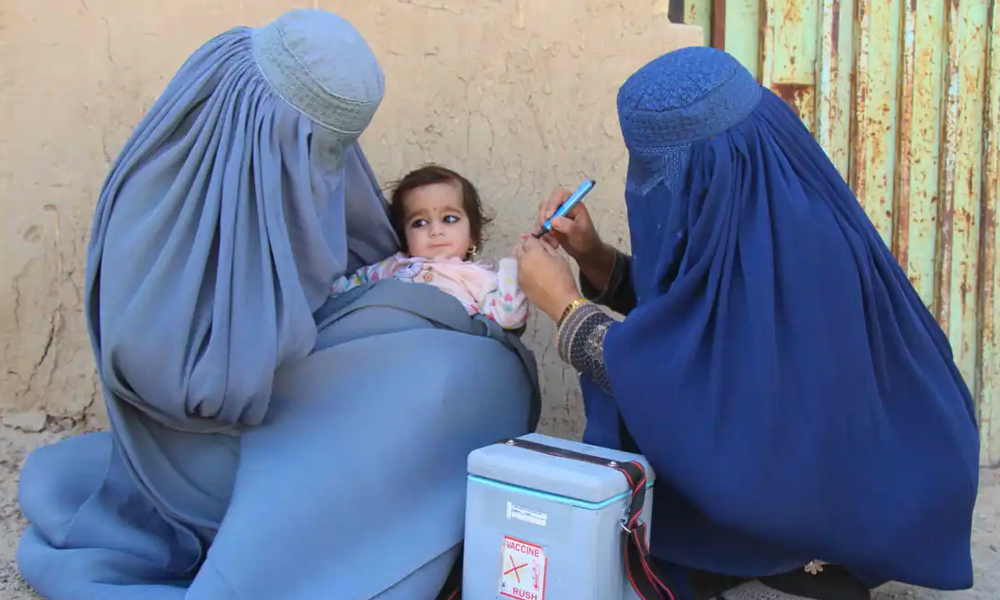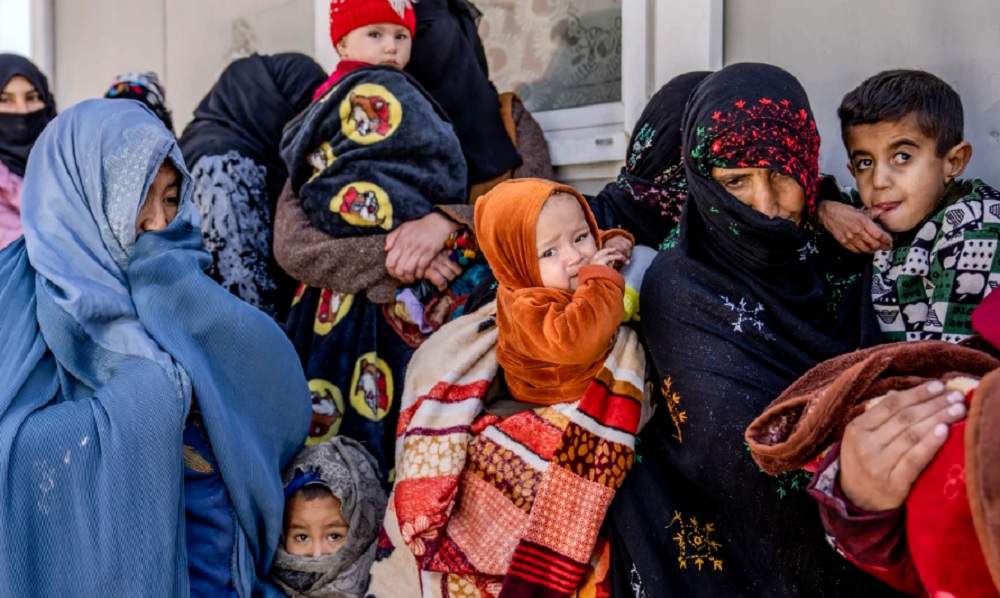Health
WHO, UNICEF launch Afghan polio vaccine campaign with IEA backing

The World Health Organization (WHO) and the United Nations children’s agency launched a polio vaccination campaign in Afghanistan on Monday, the first nationwide campaign to fight the disease in three years.
Naikwali Shah Momim, the National Emergency Operations Coordinator for the polio program at Afghanistan’s health ministry, told Reuters the campaign had started in various parts of the country on Monday, but added there were several hurdles around a shortage of trained staff.
“We have not received the polio medicines on time, and most of the families refuse to vaccinate their kids because there are some rumors that this polio vaccine may harm their children. These are the issues we are facing,” said Hassibullah Qaderi, who is working with the polio vaccine campaign.
The campaign, which aims to reach over 3 million children, had received Islamic Emirate of Afghanistan (IEA) backing, which would allow teams to reach children in previously inaccessible parts of the country, the WHO said.
Afghanistan and neighboring Pakistan are the last countries in the world with endemic polio, an incurable and highly infectious disease transmitted through sewage that can cause crippling paralysis in young children.
Polio has been virtually eliminated globally through a decades-long inoculation drive. But insecurity, inaccessible terrain, mass displacement and suspicion of outside interference have hampered mass vaccination in Afghanistan and some areas of Pakistan.
Several polio workers have been killed by gunmen in eastern Afghanistan this year, though it was not clear who was behind the attacks.
According to WHO figures compiled before the collapse of the Western-backed government in August, there was one reported case of the one wild poliovirus type 1 in Afghanistan in 2021, compared with 56 in 2020.
Until the disease is eliminated completely, it remains a threat to human health in all countries, especially those with vulnerable health systems because of the risk of importing the disease, according to health experts.
Health
Balkh health officials report sharp increase in number of cancer patients

Balkh Public Health Department officials say there has been a significant increase in the number of patients with cancer in the province.
“In 1401, about 2,613 OPD (out patient department) cases were registered with us. In 1402, these figures were 4,912 cases,” said Ehsanullah Kaliwal, the head of the oncology department at Balkh Regional Hospital.
Some doctors say genetic factors, environmental pollution, arbitrary use of medicines, and excessive consumption of meat were reasons for the sharp increase.
One doctor said cancer was also hereditry.
However, a large percentage of cancer patients in Balkh have stomach cancer. Many of them have appealed for the government to improve treatment facilities.
According to health officials, in the first month of this solar year (April), 423 cancer patients visited this hospital for treatment.
Health
Majority of Afghans with mental disorders are women: officials

Based on last year’s data, 52 percent of people with mental disorders in Afghanistan are women, the Ministry of Public Health said.
However, after the Islamic Emirate took over the country and with the improvement of nationwide security and the provision of better health services, mental disorders have decreased, the ministry said.
“Overall, the mental security of men and women in Afghanistan is not ensured and their mental security is disturbed. According to the figures shared with us, in 2023, 52 percent of the visitors for mental disorders were women,” said Sharaft Zaman Amarkhil, the spokesperson of the Ministry of Public Health.
“Generally speaking, we can say that compared to the past, the instances of mental illnesses have decreased,” he added.
People suffering mental disorders mostly refuse to share their problem, willingly or unwillingly.
“There are many problems at home; We are poor. I finished school, but didn’t find any job,” Ansar, a mentally ill person, said.
According to the World Health Organization (WHO), half of Afghanistan’s population suffers from mental distress.
Factors such as unemployment, poverty, domestic violence, ban on girls’ and women’s education and work, and drugs are said to be key contributors to mental distress.
Health
Over 1 million women in Afghanistan malnourished last year: WFP

A total of 1.2 million women in Afghanistan were malnourished last year, the U.N. World Food Programme (WFP) said on Thursday.
Mona Shaikh, head of nutrition at WFP Afghanistan, said that the number of malnourished women is expected to increase this year.
On malnourished children, she said that their number will reach 3 million this year, but WFP will be able to assist only 1.6 million of them.
WFP warned that after foreign assistance cuts last year, it saw a rise in children’s admissions to malnutrition clinics in Afghanistan.
More than 23 million people are in need of humanitarian assistance in Afghanistan this year, according to the United Nations. Over half of them are children.
-

 Sport4 days ago
Sport4 days agoACL draw to be broadcast live on ATN channels
-

 Regional5 days ago
Regional5 days agoIRGC chief warns of harsher response if Israel attacks Iran
-

 Sport3 days ago
Sport3 days agoACL fever grows as fixtures finalized
-

 Regional5 days ago
Regional5 days agoIran launches retaliatory attack on Israel with hundreds of drones, missiles
-

 Latest News5 days ago
Latest News5 days agoContact group on Afghanistan hits roadblock over Pakistan’s gripe with India
-

 Sport5 days ago
Sport5 days agoHetmyer powers Rajasthan win in low-scoring IPL thriller
-

 World5 days ago
World5 days agoUN Security Council to meet Sunday on Iran attack
-

 World4 days ago
World4 days agoUS will not take part in any Israeli retaliatory action against Iran
























